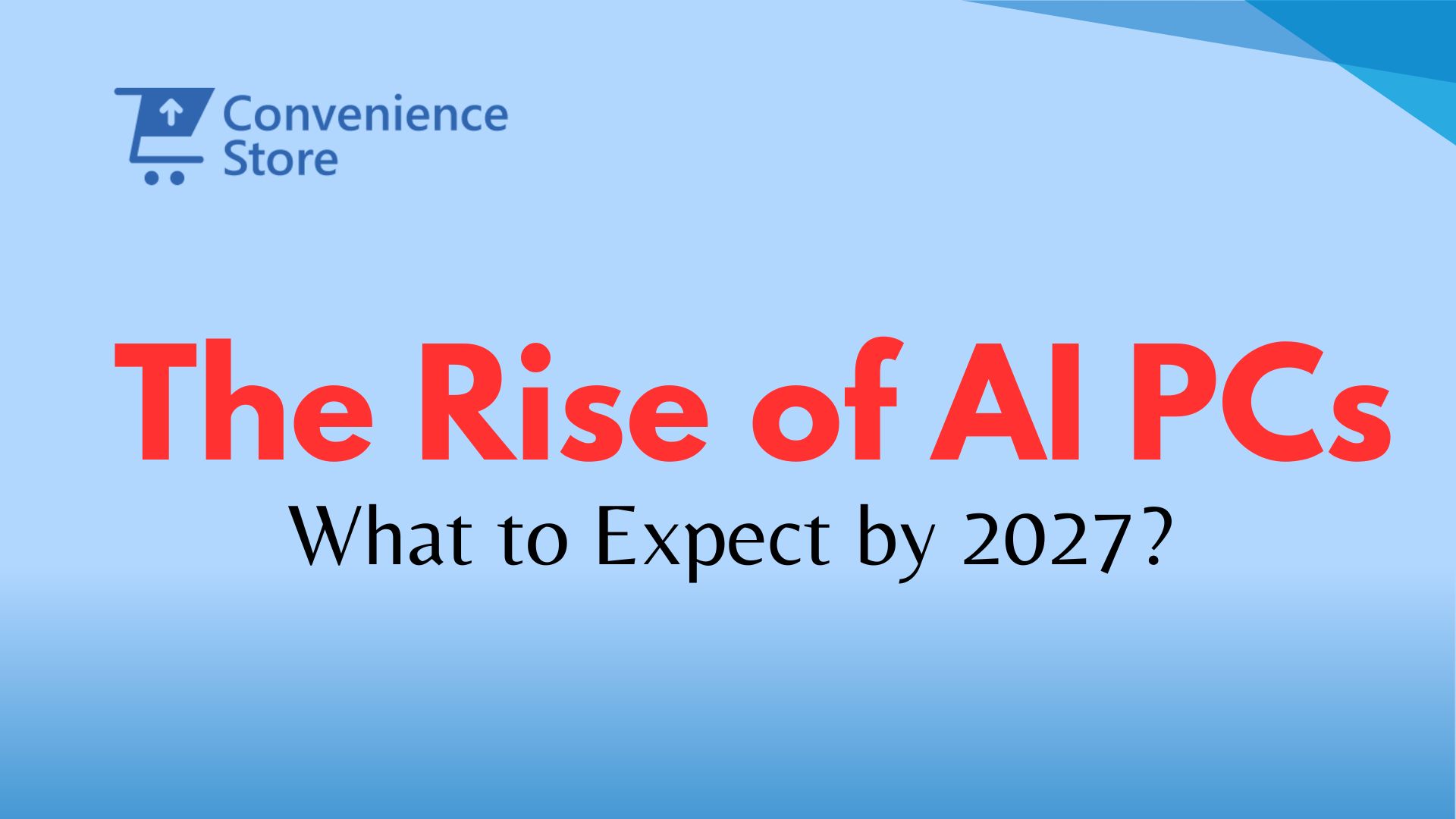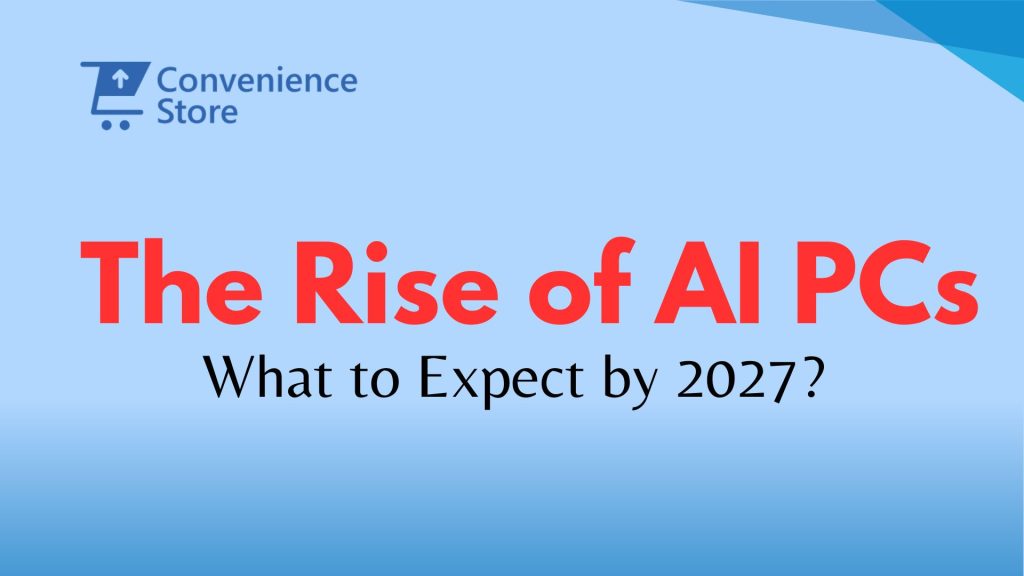The Rise of AI PCs: What to Expect by 2027


Artificial intelligence (AI) computers — PCs with specific system-on-chip (SoC) capabilities designed to run generative AI tasks locally — are growing so quickly that by 2027, these PCs will represent nearly 60% of all computers shipped globally, according to new research from International Data Corp (IDC). This surge is expected to kick off a major upgrade cycle and drive significant growth in PC sales throughout 2024. Industry experts are optimistic that the introduction of AI PCs will help reverse the recent decline in PC shipments, which saw decreases of 16.6% in 2022 and 13.8% in 2023. IDC predicts that PC shipments will rise by 3.4% in 2024, in part due to the need to replace an aging installed base of commercial PCs. Additionally, AI PCs are anticipated to increase average selling prices, providing a revenue boost for PC manufacturers and processor suppliers. With a global installed base of 1.5 billion PCs, this presents an exciting sales opportunity for the industry
The Evolution of AI PCs
Historical Context
In the 1990s, PCs became essential for consumers and businesses, driving massive growth. However, by 2015, the market plateaued as saturation was reached. Fast forward to 2024, and the introduction of AI PCs has reignited interest, potentially triggering a new “supercycle” of PC sales. These AI PCs come equipped with specialized system-on-a-chip (SoC) capabilities and neural processing units (NPUs), delivering 40 to 60 tera operations per second (TOPS).
What Are AI PCs?
AI PCs are advanced personal computers with dedicated hardware for AI tasks. These include NPUs, tensor accelerators, and AI-optimized GPUs. Unlike traditional PCs, which rely on CPUs and GPUs, AI PCs integrate AI functionalities directly into the hardware, allowing for seamless execution of AI tasks locally.
Key Features and Capabilities
AI-Optimized Hardware
The hardware in AI PCs is designed specifically for AI computations. This includes advanced processors, GPUs, and NPUs capable of performing complex tasks like real-time language translation, image recognition, and data analysis. These components enable AI PCs to perform AI-driven functions more efficiently than traditional PCs.
Enhanced Software Integration
AI PCs come with software enhancements that leverage AI capabilities. Operating systems and applications are optimized to use AI for various tasks, from predictive text and voice recognition to automated decision-making and content creation. This integration allows users to perform AI-driven functions without relying on external cloud services.
Improved Performance and Efficiency
The specialized AI hardware significantly boosts performance and efficiency. AI algorithms optimize system resources, manage power consumption, and enhance multitasking capabilities, resulting in faster processing times and improved battery life for laptops.
Market Impact and Growth
Surge in Tech Spending
Analysts predict a significant increase in tech spending due to the introduction of AI PCs. After several quarters of declining sales, the PC market is expected to rebound, with shipments projected to rise by 3.4% in 2024. The need to replace aging PCs and the allure of AI capabilities are driving this growth.
Consumer and Enterprise Adoption
Both consumers and businesses are expected to favor AI-capable PCs. Enterprises will benefit from enhanced productivity and security, while consumers will enjoy more intuitive and personalized computing experiences. This shift is expected to drive significant growth in PC sales over the next few years.
Future Trends and Developments
Integration with Internet of Things (IoT)
AI PCs are expected to integrate more deeply with IoT devices, creating a seamless ecosystem for smart homes and offices. This will enhance connectivity and automation, allowing users to control and manage their IoT devices through their AI PCs .
Advanced AI Models and Applications
Future AI PCs will incorporate more advanced AI models, such as reinforcement learning and generative adversarial networks (GANs). These models will enable PCs to perform even more complex tasks, pushing the boundaries of personal computing capabilities .
Enhanced Collaboration and Remote Work Tools
AI PCs will revolutionize collaboration tools, making remote work more efficient. Features like real-time language translation, intelligent meeting summaries, and automated task management will become standard, improving productivity and communication .
Sustainable Computing Solutions
AI-driven power management and resource optimization will contribute to more sustainable computing solutions. AI PCs will help reduce the carbon footprint of computing devices by optimizing energy consumption and promoting eco-friendly practices .
Challenges and Considerations
Privacy and Security Concerns
The integration of AI into PCs raises significant privacy and security concerns. As these devices collect and process large amounts of data, ensuring robust data protection measures and transparent data usage policies will be crucial.
Ethical Implications
The rise of AI PCs also brings ethical considerations, such as potential bias in AI algorithms and the impact on employment. Addressing these issues through ethical AI development and regulatory frameworks will be essential for responsible innovation.
The rise of AI PCs marks a significant milestone in the evolution of personal computing. With enhanced performance, intelligent features, and personalized experiences, AI PCs are set to transform how we interact with technology. As the industry embraces this new era, it is clear that AI PCs represent a future where machines learn, adapt, and work alongside humans to create a more efficient and connected world.
From hardware to software, AI PCs are poised to deliver a whole new level of computing power and intelligence, making them indispensable tools for both consumers and enterprises. As we look forward to these advancements, it is essential to consider the ethical and societal implications to ensure a balanced and beneficial integration of AI into our daily lives.




